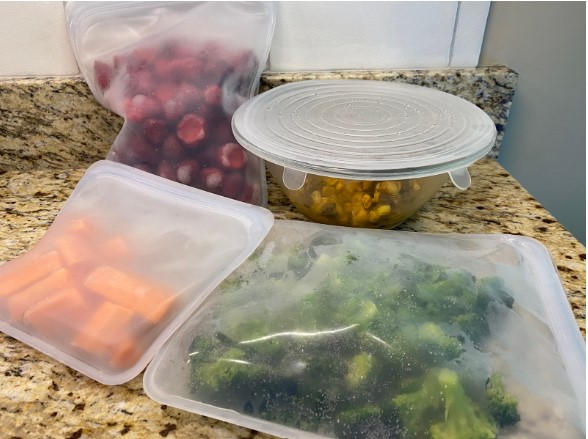By Christine Campanella, Blue Ocean Society Volunteer
You may have already heard or read about many of the disturbing statistics regarding plastic in our ocean. Studies show that by 2050 there will be more plastic than fish in the ocean. In 2017, the United Nations Clean Seas Campaign estimated that there are 51 trillion microplastic particles in the ocean today, that’s 500 times more than the number of stars in our galaxy!
So what can we do? Recycling is good, however, of the 300 million tons of new plastic produced every year (half of this is single-use plastic), less than 10% is recycled. As individuals, we can have an impact on plastic pollution entering our oceans, rivers, and streams by swapping out plastic in our everyday lives to reusable & sustainable items.
My journey towards a more sustainable plastic-free lifestyle began about a year and a half ago. I came across a bamboo utensil set on an online shopping store and decided I would buy them and bring to work to use instead of the plastic utensils. This simple purchase inspired me to take a look around my home and see the plastic items that I was using every day. It was quite overwhelming! Slowly I have replaced many of my plastic items.
Where do you begin? Let’s take a look at the kitchen. As you look around, see what you use the most or a plastic item that seems to spark your interest to change into a reusable item. For me, I started with plastic cling wrap and plastic resealable baggies. These items are an easy swap!
Silicone stretch lids are awesome; they’re one of my favorite things and inexpensive. These silicone lids cover dishes/plates of all shapes and sizes. They are very easy to clean (dishwasher safe, but I just hand wash them).
Another one of my favorites is reusable silicone bags to replace plastic resealable baggies. They come in an assortment of sizes and shapes, extremely durable, I just love them.
When purchasing items, I found it best to buy products from plastic free/package free sustainable stores. Typically, these stores hold the same values we do as far as wanting a more plastic free life and will ship items plastic free. Also, many of these stores give back to the planet, offsetting their carbon footprint from shipping by planting a tree or donating a portion of the sale to ocean conservation.
Although some replacement items may seem more expensive, I think of it as an investment. Plastic food wrap and resealable plastic bags are no longer on my shopping list, which add up over time considering we just throw them away once we use them.
Plastic Free July is a great time to begin your own journey towards minimizing plastic use. I’m excited to share more items with you in future blog posts to assist you in decreasing your use of plastics in everyday life, therefore helping to decrease the plastic that ends up in our beautiful oceans. Pulling together to make small changes as individuals gives us the power to make a real difference!
*Simple Solutions for Plastic Pollution doesn’t stop here!
- Simple Solutions for Plastic Pollution – Kitchen and Bathroom Essentials
- Simple Solutions for Plastic Pollution – Looking Beyond the Obvious
Sources:
- https://www.5gyres.org/faq
- https://news.un.org/en/story/2017/02/552052-turn-tide-plastic-urges-un-microplastics-seas-now-outnumber-stars-our-galaxy
- https://www.nrdc.org/stories/single-use-plastics-101
- https://plasticoceans.org/the-facts/






